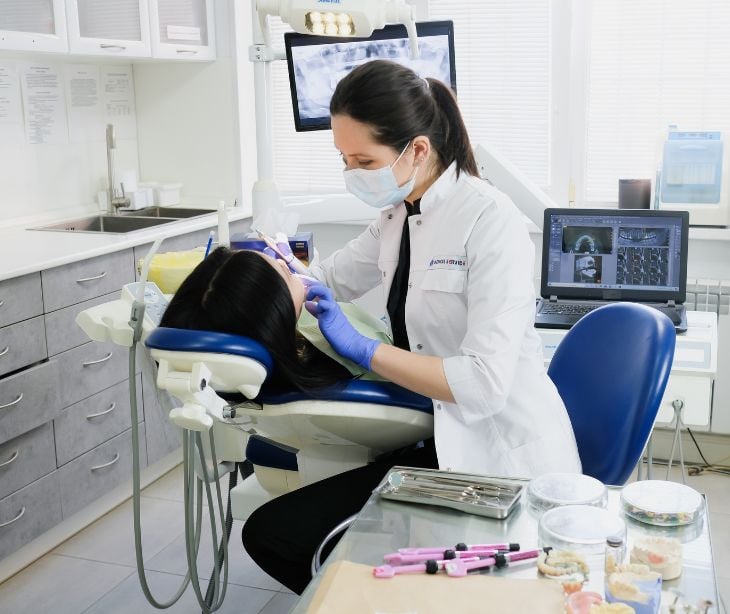
Social media has transformed how we communicate, but it also poses unique challenges for healthcare providers and organizations. By understanding HIPAA regulations, implementing clear social media policies, and educating employees, healthcare organizations can navigate the world of social media while maintaining patient privacy and HIPAA compliance.
Understanding HIPAA and social media
While HIPAA doesn't explicitly mention social media, its principles extend to digital platforms. Covered entities must adhere to the HIPAA privacy rule, which governs the handling of protected health information (PHI) online. In May 2023, The Guardian reported NHS trusts sharing patient data with Facebook without consent, leading to a breach. This proves that healthcare organizations need to comply with privacy regulations on social media, or face legal consequences.
Related: What is the HIPAA Privacy Rule?
The impact of social media on HIPAA compliance
Healthcare providers and organizations must be cautious about how they handle patient information on social media to avoid violating HIPAA regulations.
Patient privacy risks
One of the main risks of social media in healthcare is the potential breach of patient privacy. Posting patient information, even unintentionally, can lead to serious consequences and legal repercussions. This includes sharing identifiable information, such as names, photos, medical conditions, or any other details that could potentially link the information back to an individual.
Employee education and training
Healthcare organizations must provide adequate education and training to their employees to mitigate the risks associated with social media use. Employees should be made aware of the potential consequences of HIPAA violations on social media and understand the importance of safeguarding patient information.
Establishing social media policies
Healthcare organizations need clear social media policies and procedures. These policies should outline guidelines for employees regarding the appropriate use of social media in a healthcare setting and clearly state what is considered acceptable and unacceptable behavior when sharing patient information or discussing work-related matters on social media platforms.
Monitoring and enforcement
Healthcare organizations should implement monitoring and enforcement mechanisms to ensure compliance with social media policies. This can include regular audits of employees' social media activities, periodic training refreshers, and disciplinary actions for policy violations.
Read more: Social media & HIPAA compliance: The ultimate guide
Best practices for HIPAA compliant social media use
To maintain HIPAA compliance while utilizing social media, healthcare organizations should follow these best practices:
Obtain patient consent
Before sharing any patient information on social media, healthcare providers must obtain written consent from the patient. This consent should clearly state the purpose of sharing the information and the platforms on which it will be shared. It is important to explain the risks associated with sharing information on social media and allow patients to make an informed decision.
De-identify patient information
When sharing patient success stories or case studies on social media, remove any identifying details, such as names, photos, or specific locations. Use generic terms or fictional names instead.
Train employees on social media best practices
All employees who have access to patient information should receive training on social media best practices. This includes understanding the risks associated with social media use, recognizing the types of information that should not be shared, and how to respond to potential HIPAA violations.
Regularly update social media policies
Social media platforms and best practices are constantly evolving. Healthcare organizations should regularly review and update their social media policies to address any new risks or changes in technology. This ensures that employees are aware of the latest guidelines and expectations.
Monitor social media activities
Implementing a system to monitor employees' social media activities can help identify potential HIPAA violations and address them promptly. Regularly review employee social media profiles and posts to ensure compliance with established policies.
Encourage privacy settings and disclaimers
Healthcare providers and employees should be encouraged to set their social media accounts to the highest level of privacy available. Additionally, they should include disclaimers on their profiles or bios stating that their views are their own and do not represent the views of their employer.
Use social media for education and awareness
While there are risks associated with social media use, it can also be a valuable tool for healthcare organizations to educate and raise awareness about various health topics. Use social media platforms to share general health information, promote healthy habits, and engage with the community.
Read also: Leveraging social media platforms for HIPAA compliant patient outreach
FAQs
Can healthcare organizations address patient queries on social media platforms?
Healthcare organizations should refrain from discussing specific patient health details on social media. Encourage patients to use secure communication channels or contact their healthcare provider directly for personalized inquiries.
Is it acceptable to share general health tips and updates on social media?
Yes, sharing general health information is fine, but avoid examples that might inadvertently reveal patient-specific details.
How can social media be used for HIPAA compliant patient engagement?
Use social media for sharing general health info and educational content. Encourage patients to seek personalized advice through secure channels to ensure privacy.
Can healthcare services be advertised on social media platforms?
Yes, but ensure advertisements avoid disclosing patient-specific details to comply with HIPAA guidelines.
Subscribe to Paubox Weekly
Every Friday we bring you the most important news from Paubox. Our aim is to make you smarter, faster.




